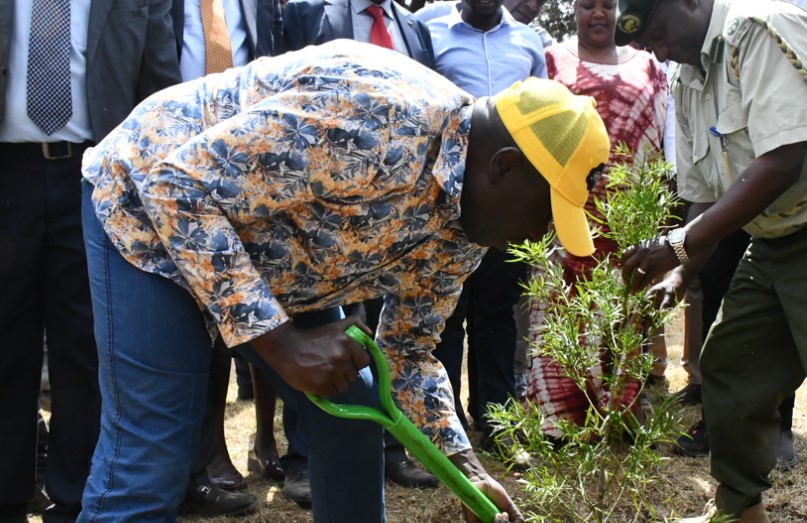Deputy President Rigathi Gachagua has called upon residents of Kericho to plant and grow more trees to mitigate the adverse effects of climate change.
He urged them to increase the tree cover by 20 per cent by planting more trees by the year 2030.
Gachagua spoke during the unveiling of a Borehole at Londiani Forest College in Kipkelion East Sub-county in Kericho.
He reiterated the Kenya Kwanza government’s policy of planting 15 billion trees by the year 2030 saying it is still on course.
Did you read this?
Additionally, the Deputy President called for concerted efforts in the management and protection of the environment and forests for sustainable development and posterity.
He was impressed that the Forest College in London could now pump significant amounts of water to the facility using solar energy, which would be extensively used for expanding the number of trees.
Further, he said that the commissioning of the borehole should act as a model for all forest supervisors in the country, to dig more boreholes to supply water to all neighbouring institutions.
To add to that, the DP called upon unemployed youth to capitalize on opportunities by the government's endeavours in employing forest officers and forest rangers, who will play an instrumental role in taking care of the forests within the country.
“The Government is committed to increasing the tree cover and that calls for more deployment of officers, who will play a part in taking good care of our natural resources,” he said.
Farmers have been inconvenienced by the shift in weather since they can no longer rely on the short and long rains with the assurance of a big harvest, according to him, who said that climate change is to blame.
Gachagua also urged the Kenya Forest Service Officers to work with the residents living in the surroundings of the forest to learn how to protect it.
This follows President William Ruto's launch of a tree restoration program at Ngong Hills Forest in an effort to combat the effects of climate change in the country late last year.
The initiative, which aims to plant 15 billion trees by 2032, will work to reduce greenhouse emissions, stop and reverse deforestation, and restore 5.1 million hectares of deforested and degraded landscapes through the African Landscape Restoration Initiative.









